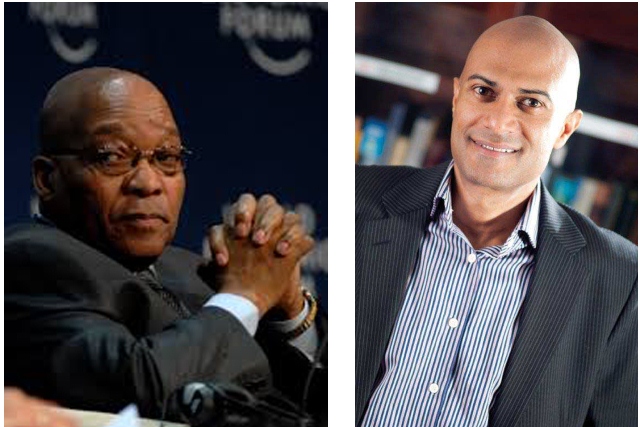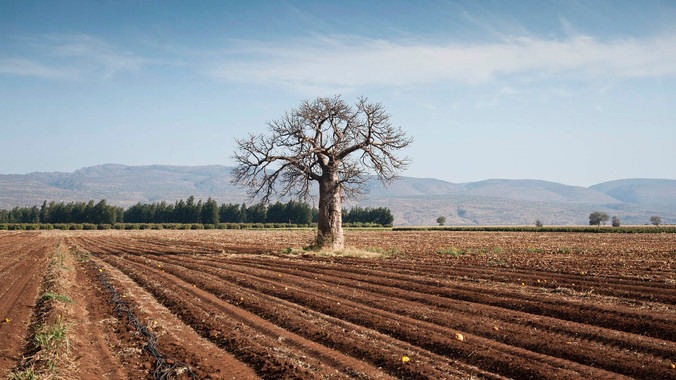Proposed bill also seeks to stop any individual from owning more than 12 000 hectares.
Brazil, Argentina, India and the United States have all recently moved to tighten restrictions concerning foreign ownership of farmland in their respective countries.
By THALIA HOLMES, Mail and Guardian.
South Africa cannot be compared to other countries that forbid foreign ownership of land, say economists in response to a government proposal to prevent noncitizens from owning farms.
The Land Holdings Bill, which will soon be introduced to Parliament for approval, will also stop any individual from owning more than 12 000 hectares, with the government undertaking to buy and redistribute excess land.
The Bill, which was confirmed by President Jacob Zuma in last month’s State of the Nation address, is part of the government’s attempt to show that major strides are being made in the area of land reform. Unsurprisingly, it has drawn criticism from property ownership groups and economists.
But the government has highlighted that limiting foreign ownership of land is becoming an international norm. “It is not unusual. In fact, many, many countries in the world do not allow foreign ownership of land, including developed countries,” Tourism Minister Derek Hanekom, a former land affairs minister, told reporters.
Brazil, Argentina, India and the United States have all recently moved to tighten restrictions concerning foreign ownership of farmland in their respective countries. In Switzerland, would-be foreign landowners face various hurdles and restrictions, depending on where in the country they want to invest.
Australian policy
Talks are under way in Australia to increase foreign ownership restrictions on residential and agricultural property. In Thailand, Cambodia, Indonesia and the Philippines foreign ownership of land of any kind is forbidden.
But local analysts say a parallel cannot be drawn between these countries and South Africa.
“That argument that we’re in line with other countries is not really an argument,” said John Loos, a property strategist for First National Bank.
“Every country comes with a package of advantages and disadvantages, and every country’s package differs,” said Loos. “So, when you say: ‘We’re in line with country X,’ you must ask: ‘Are you in line with country X on all the other points as well?’ I think not. Countries like Brazil and Argentina, for example, are situated close to the biggest economy in the world. Switzerland is well situated in the European market. In contrast, South Africa is one of the most isolated economies on the planet in terms of its proximity to major markets,” said Loos.
“Those other countries may have all the foreign investment they need. We’re already disadvantaged in other ways when it comes to attracting investment. Can we afford to put a limit on foreign land ownership as well?” he said. “I personally don’t believe we should be putting serious limits on any type of foreign direct investment.”
Investor sentiment

From Left: South Africa’s President Jacob Zuma and Neil Gopal, Chief Executive of the South African Property Owners Association
In the opinion of Neil Gopal, chief executive of the South African Property Owners Association, the Bill will have a negative effect on investor sentiment. “It has the potential to hamper investor confidence in the country and curb foreign direct investment flows,” said Gopal.
“Foreign investment in property boasts benefits for the commercial property industry and with such proposals put forward, the industry falls prey to negative knock-on effects.”
Jacques du Toit, a property analyst at Absa, agrees. “It’s difficult to determine what the specific impact on the economy will be, but obviously it will have an impact on investor confidence in terms of buying property in the country from a foreign point of view,” he said.
The presidency, however, says other land usage options will be available to foreigners. Such investors will be allowed to take land on a long-term lease of between 30 and 50 years. “I think we are taking a very fair decision to say if you are coming for business and you need land, we will lease it [to you] … I think that is fair,” Zuma told the SABC days after his State of the Nation speech.
In a public statement, the presidency also clarified that only foreign-born noncitizens will be excluded from ownership, meaning foreigners who have become South African citizens will be able to buy land. “Foreign nationals and juristic persons are understood as noncitizens, as well as juristic persons whose dominant shareholder or controller is a foreign-controlled enterprise, entity or interest [will be excluded]. Hence, not all immigrants to South Africa will be excluded from land ownership,” said the statement.
No retrospective application
The presidency claimed that no existing landowners would be threatened by the envisaged law. “It is recognised that this cannot apply retrospectively without constitutional infringements and, as such, those who have already acquired freehold [land] would not have their tenure changed by the passing of the proposed law,” it said.
Nevertheless, the Bill could raise some uncertainties, said Du Toit. For example, the future of major factories owned by foreign companies on large tracts of land may come into question.
There are few statistics available on the extent of land ownership by foreigners, but analysts suspect that the winelands in the Western Cape will be the hardest hit should the Bill be signed into law. In Loos’s opinion, the loss will be twofold.
“I suspect foreigners investing in wine farms in the Western Cape bring a huge amount of skills to that industry,” he said. “It’s come a long way in the last 20 years and there’s a group of foreigners that have contributed positively to that. If you limit ownership, you limit capital, but you also limit the skills coming into the country.”
Some say the Bill places an unnecessary constraint on an already small market. “I don’t perceive there’s huge amounts of foreign land ownership in South Africa,” said one analyst. “I don’t really think it’s a huge issue here.” Unlike London and other global centres, property values in South Africa are not noticeably driven up by foreigners apart from in small pockets in the country, he said.
But Zuma believes the law addresses an important social issue. “To buy it and make it your property when a good percentage of South African cities have no land … is very difficult to justify when people … don’t own land and part of our country is being owned by people out there,” he said.




